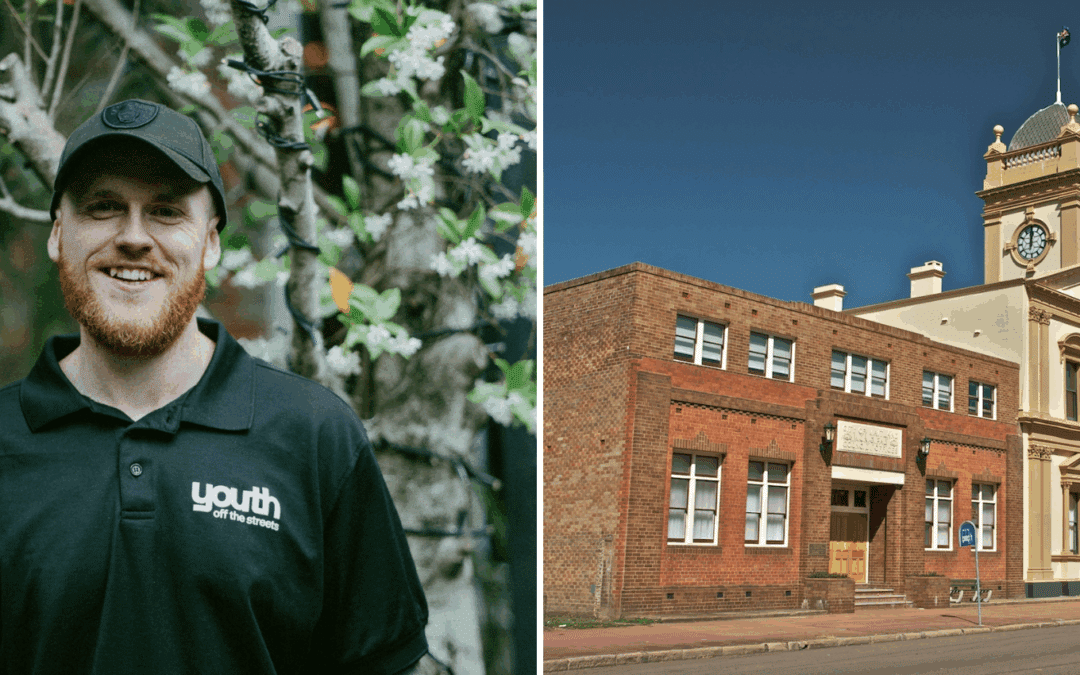Last year, Cara* didn’t attend a single day of high school. When you consider her home life, it’s not hard to understand why – exposure to domestic violence, substance abuse, financial stress and mental health issues are everyday occurrences for her.
Across Australia, young people aged 15–19 regularly ‘disappear’ from formal education. A report by the University of Melbourne estimates that over 50,000 young people are missing from the school system at any given time.
At the start of this year, Cara enrolled in one of Youth Off The Streets’ accredited independent high schools. The same week she started attending school, her family was evicted from their home. Instead of returning to a familiar environment at the end of the day, Cara was living out of the family car, or in hotels or emergency accommodation.
This isn’t an unusual situation for young people who have become disconnected from education – the young people often deemed ‘too hard’, or who mainstream schools simply don’t have the resources to support.
Despite facing enormous barriers to continuing her education, so far this year Cara’s school attendance has been above 70 per cent.
Our school staff focussed on building a strong and supportive connection with Cara. Our wraparound model ensured she had access to regular mental health support, a mentor, and food for her family, who eventually found secure accommodation.
But there’s another reason why Cara is now successfully reengaging with school. It’s an innovative new program called Schooling via Off-campus Learning for At-Risk students, or SOLAR.
SOLAR was developed by Youth Off The Streets teacher Amy Gill in 2020, during the first COVID lockdown.
While a home-based learning model was already in place for some students in our schools, lockdown highlighted the need for a program tailored to the specific needs of the most vulnerable students.
For young people like Cara who experience ongoing trauma, anxiety or depression, the challenge of being in a physical space with their peers can be overwhelming.
The blended delivery model offered by SOLAR allows these young people to build connections with teaching staff and other students in the safety of their own space. With no need to be on ‘high alert’ for triggering events or threats to their safety, they can concentrate on their studies and learn more effectively.
Once trust and psychological safety have been established, the young person can then slowly integrate into the physical school environment, continuing their home-based learning for two days each week and attending campus for the other three. The SOLAR program has a separate classroom and the majority of the curriculum – which follows a project-based learning model to maximise student engagement – is delivered by one teacher.
Our teaching staff have found the SOLAR approach is also hugely beneficial for students with sensory issues and those who are easily distracted.
Learning remotely allows these young people to have more control over their environment, helping them build their confidence as learners without distractions. As their confidence grows, they become better able to manage their challenges in a classroom setting.
But the fact remains that unacceptably high numbers of young people disconnect from school every year. Furthermore, this issue disproportionately affects those from the most disadvantaged communities.
According to the Australian Institute of Health and Welfare, the number of 15–24 years olds from low socioeconomic areas who are not studying or working – around 96,000 young people – is more than twice as high as those from the highest socioeconomics areas.
These are young people like Cara, and like Jamie* – another SOLAR success story.
Jamie went from being unable to leave his house due to mental health issues to enrolling in SOLAR and attending remote lessons twice a week. With the wraparound supports provided by Youth Off the Streets schools, Jamie starting accessing mental health services.
By the end of Term 2 this year, Jamie was coming to campus, had attained his construction white card, started an online computer coding course and applied for a job. He is now even talking about completing his HSC.
That is why programs like SOLAR are so vital.
Disconnection from education can lead to future unemployment, which in turn increases the likelihood of poor physical and mental health, family disruption and social isolation.
The negative impacts don’t stop there. Research shows that the children of unemployed parents with low educational attainment also have lower attainment, fewer aspirations and a reduced sense wellbeing compared to their peers.
At Youth Off The Streets, we know that every young person can reach their full potential if they are supported and engaged in education that is meaningful to their individual needs – practical, emotional, physical, social and academic.
The success of the SOLAR project is a testament to that.
Although current funding means we are only able to offer SOLAR at one of our six independent schools, we know that there are many more young people like Cara and Jamie whose lives would be transformed by the program.
At-risk young people are in every school community, either hidden in plain sight and quietly slipping through the cracks, or else considered too challenging to be helped by a mainstream school with its own funding limitations.
As students across the country re-adapt to learning remotely, last year’s lockdown experience and the success of SOLAR tells us that many young people who struggle with an inflexible, classroom-based approach to education might actually be more engaged with school than before.
Provided these young people have digital access – not a given in low-income households, and another equity issue that demands urgent solutions – other barriers to participating in school are removed.
What else might mainstream education learn from the success of the SOLAR approach?
Our staff work hard at developing strong relationships with families, as our students need their support in the home environment. This team-based approach has been vital to the success of the program.
Our Student Support Youth Workers are also an essential part of the team. Another Youth Off The Streets innovation – both within the SOLAR program and across our six schools – this role was created to link our students to external support services while also providing internal classroom support.
SOLAR also offers a unique approach to education for young people experiencing trauma or mental health issues. With record numbers of young people reporting high levels of psychological distress – one in every five, according to Headspace – SOLAR’s blended delivery model could be a positive way forward for many young people at risk of disengaging from school. Cara and Jamie are proof of that.
Lex Nadine Lutherborrow, CEO of Youth Off The Streets
*Names changed to protect the privacy of the young people
Learn more about our accredited alternative high schools.



